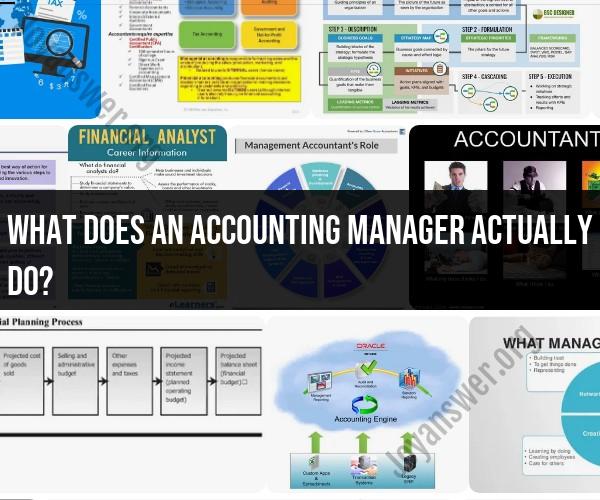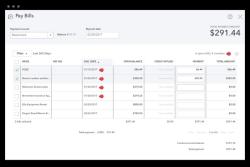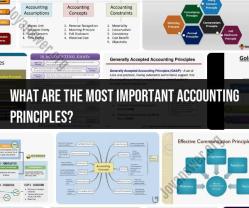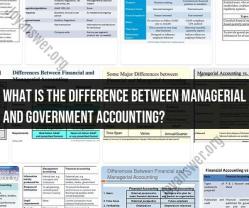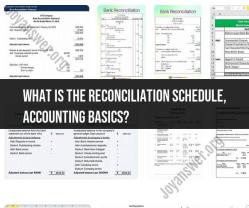What does an accounting manager actually do?
An accounting manager plays a crucial role in the financial management of a company or organization. Their responsibilities and duties typically encompass a wide range of tasks related to financial reporting, compliance, and overseeing the work of the accounting department. Here are some of the key responsibilities and duties of an accounting manager:
Financial Reporting: Accounting managers are responsible for preparing and overseeing financial reports, including income statements, balance sheets, and cash flow statements. They ensure that financial data is accurate and prepared in accordance with relevant accounting standards.
Budgeting and Forecasting: They often participate in the budgeting process and may be responsible for creating and managing budgets. This includes working with other departments to set financial goals and monitor performance against those goals.
Financial Analysis: Accounting managers analyze financial data to provide insights and recommendations to senior management. They may identify cost-saving opportunities, revenue growth strategies, and areas of financial risk.
Supervising Staff: Accounting managers oversee the work of their team, which may include accountants, bookkeepers, and clerical staff. They assign tasks, provide guidance, and ensure that work is completed accurately and on time.
Compliance and Regulation: They ensure that the organization complies with all relevant financial regulations, tax laws, and accounting standards. This may involve working with auditors and tax authorities.
Internal Controls: Accounting managers establish and maintain internal controls to safeguard the company's assets and ensure the accuracy of financial data. They may also be responsible for fraud prevention and detection.
Financial Software and Systems: They often work with financial software and systems to streamline accounting processes and improve efficiency. This may include implementing new software or upgrading existing systems.
Cash Management: They oversee cash management functions, which involve managing cash flows, optimizing liquidity, and making decisions related to investments or borrowing.
Financial Planning: Accounting managers may be involved in long-term financial planning, which includes strategic financial decisions and forecasting for the organization's growth and stability.
Financial Audits: They coordinate and participate in financial audits, both internal and external. This involves providing auditors with necessary documentation and ensuring that audit findings are addressed.
Communication: Accounting managers often communicate financial information to various stakeholders, including senior management, board members, and investors. They must be able to explain complex financial concepts in a clear and understandable manner.
Training and Development: They may provide training and professional development opportunities for their accounting team to ensure that staff members stay updated with industry best practices and regulations.
The specific responsibilities of an accounting manager can vary depending on the size and nature of the organization. In larger companies, they may oversee a team of accountants and specialists, while in smaller organizations, they might handle a broader range of financial tasks themselves. Overall, their role is vital in maintaining financial health and ensuring the organization's compliance with financial standards and regulations.
What exactly does an accounting manager do in their role?
An accounting manager is responsible for overseeing the financial operations of a company. This includes tasks such as:
- Preparing and analyzing financial statements
- Managing budgets and forecasts
- Developing and implementing accounting policies and procedures
- Supervising and training accounting staff
- Ensuring compliance with all financial regulations
- Providing financial advice and support to management
How does an accounting manager oversee financial operations and reporting?
Accounting managers oversee financial operations and reporting by:
- Developing and implementing accounting policies and procedures
- Supervising the work of accounting staff
- Reviewing and analyzing financial statements
- Preparing reports for management
- Communicating with auditors and other external stakeholders
Can you provide an overview of the key functions and responsibilities of an accounting manager?
The key functions and responsibilities of an accounting manager include:
- Financial reporting: Accounting managers are responsible for preparing and analyzing financial statements, such as balance sheets, income statements, and cash flow statements. These statements provide information about a company's financial performance and position.
- Budgeting and forecasting: Accounting managers develop and manage budgets and forecasts. Budgets help companies to track their spending and ensure that they are staying on track financially. Forecasts help companies to predict their future financial performance.
- Accounting policies and procedures: Accounting managers develop and implement accounting policies and procedures. These policies and procedures ensure that a company's financial records are accurate and compliant with all applicable regulations.
- Supervision and training: Accounting managers supervise and train accounting staff. This includes ensuring that staff members are properly trained on the company's accounting policies and procedures.
- Compliance: Accounting managers ensure that the company complies with all applicable financial regulations. This includes tax laws, accounting standards, and industry regulations.
- Financial advice and support: Accounting managers provide financial advice and support to management. This includes helping management to make informed decisions about the company's finances.
What skills and qualifications are necessary for success as an accounting manager?
To be successful as an accounting manager, you need to have the following skills and qualifications:
- Bachelor's degree in accounting or a related field
- Strong accounting knowledge and skills
- Experience in supervising and training staff
- Excellent communication and interpersonal skills
- Ability to work independently and as part of a team
- Ability to meet deadlines and manage multiple projects
How to advance your career as an accounting manager and contribute to organizational growth?
To advance your career as an accounting manager and contribute to organizational growth, you can:
- Continue your education by earning a master's degree in accounting or a related field
- Obtain professional certifications, such as the Certified Public Accountant (CPA) or the Certified Management Accountant (CMA)
- Take on new challenges and responsibilities within your organization
- Network with other accounting professionals and leaders
- Stay up-to-date on the latest accounting trends and developments
By following these tips, you can position yourself for success in your accounting management career and make a significant contribution to your organization's growth.
